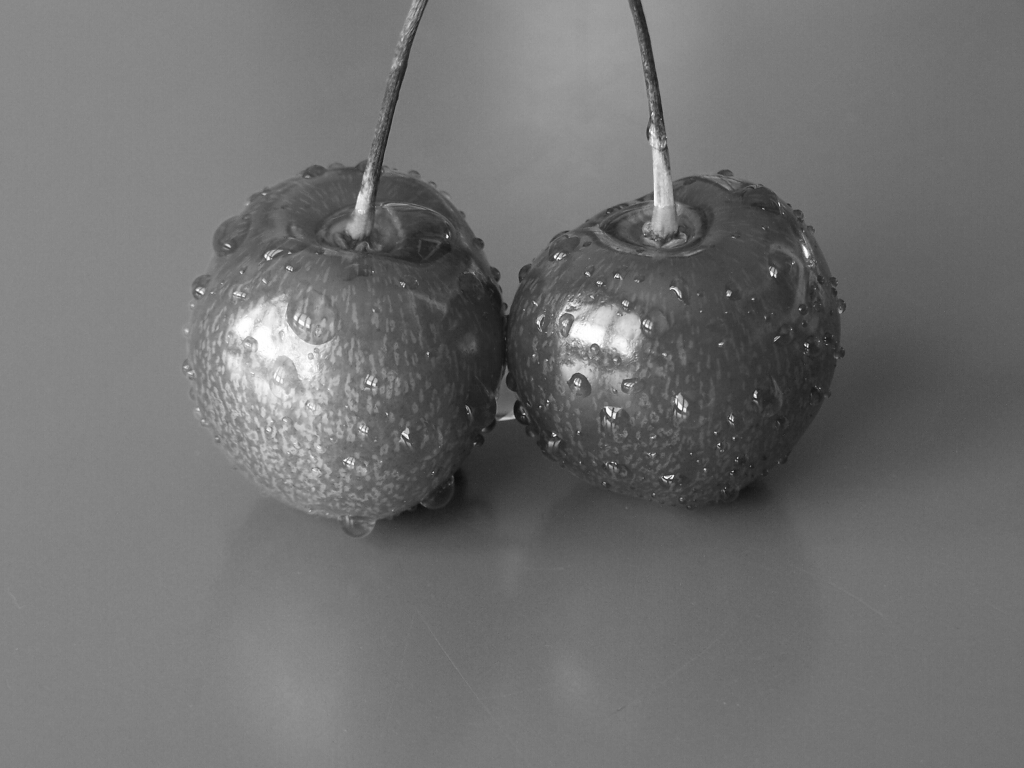مقالة جميلة للدكتور ميسرة طاهر في
جريدة عكاظ
عبارة عن قصة فيها فائدة جميلة
من العدد رقم 2364 وذلك في يوم
الجمعه تاريخ 7/12/2007م
((هل أعلمه الأدب أم أتعلم منه
قلة الأدب))
في كل صباح يقف عند كشكه الصغير
ليلقي عليه تحية الصباح ويأخذ
صحيفته المفضلة ويدفع ثمنها وينطلق ولكنه لا يحظى إطلاقا برد منالبائع على تلكالتحية، وفي كل صباح أيضا يقف بجواره شخص آخر يأخذ صحيفته المفضلة ويدفع ثمنها ولكن صاحبنا لا يسمع صوتا لذلك الرجل، وتكررت اللقاءات أمام الكشك بين الشخصين كل يأخذ صحيفته ويمضي في طريقه، وظن صاحبنا أن الشخص الآخر أبكم لا يتكلم. إلى أن جاء اليوم الذي وجد ذلك الأبكم يربت على كتفه وإذا به يتكلم متسائلا: لماذا تلقي التحية على صاحب الكشك؟ فلقد تابعتك طوال الأسابيع الماضية وكنت في معظم الأيام ألتقي بك وأنت تشتري صحيفتك اليومية.
فقال الرجل وما الغضاضة في أن ألقي عليه التحية؟
فقال: وهل سمعت منه ردا طوال تلك الفترة؟
فقال صاحبنا: لا ،
قال: إذا لم تلقي التحية على رجل لا يردها؟
فسأله صاحبنا وما السبب في أنه لا يرد التحية برأيك؟
فقال : أعتقد أنه وبلا شك رجل قليل الأدب، وهو لا يستحق أساسا أن تُلقى عليه التحية.
فقال صاحبنا: إذن هو برأيك قليل الأدب؟
قال: نعم.
قال صاحبنا: هل تريدني أن أتعلم منه قلة الأدب أم أعلمه الأدب؟
جريدة عكاظ
عبارة عن قصة فيها فائدة جميلة
من العدد رقم 2364 وذلك في يوم
الجمعه تاريخ 7/12/2007م
((هل أعلمه الأدب أم أتعلم منه
قلة الأدب))
في كل صباح يقف عند كشكه الصغير
ليلقي عليه تحية الصباح ويأخذ
صحيفته المفضلة ويدفع ثمنها وينطلق ولكنه لا يحظى إطلاقا برد منالبائع على تلكالتحية، وفي كل صباح أيضا يقف بجواره شخص آخر يأخذ صحيفته المفضلة ويدفع ثمنها ولكن صاحبنا لا يسمع صوتا لذلك الرجل، وتكررت اللقاءات أمام الكشك بين الشخصين كل يأخذ صحيفته ويمضي في طريقه، وظن صاحبنا أن الشخص الآخر أبكم لا يتكلم. إلى أن جاء اليوم الذي وجد ذلك الأبكم يربت على كتفه وإذا به يتكلم متسائلا: لماذا تلقي التحية على صاحب الكشك؟ فلقد تابعتك طوال الأسابيع الماضية وكنت في معظم الأيام ألتقي بك وأنت تشتري صحيفتك اليومية.
فقال الرجل وما الغضاضة في أن ألقي عليه التحية؟
فقال: وهل سمعت منه ردا طوال تلك الفترة؟
فقال صاحبنا: لا ،
قال: إذا لم تلقي التحية على رجل لا يردها؟
فسأله صاحبنا وما السبب في أنه لا يرد التحية برأيك؟
فقال : أعتقد أنه وبلا شك رجل قليل الأدب، وهو لا يستحق أساسا أن تُلقى عليه التحية.
فقال صاحبنا: إذن هو برأيك قليل الأدب؟
قال: نعم.
قال صاحبنا: هل تريدني أن أتعلم منه قلة الأدب أم أعلمه الأدب؟
فسكت الرجل لهول الصدمة ورد بعد طول تأمل: ولكنه قليل الأدب وعليه أن يرد التحية.
فأعاد صاحبنا سؤاله: هل تريدني أن أتعلم منه قلة الأدب أم أعلمه الأدب؟
ثم عقب قائلا: يا سيدي أيا كانالدافع الذي يكمن وراء عدم رده لتحيتنا فإن ما يجب أن نؤمن به أن خيوطنا يجب أن تبقى بأيدينا لا أن نسلمها لغيرنا، ولو صرت مثله لا ألقي التحية على من ألقاه لتمكن هو مني وعلمني سلوكه الذيتسميه قلة أدب وسيكون صاحب السلوك الخاطئ هو الأقوى وهو المسيطر وستنتشر بين الناس أمثال هذه الأنماط من السلوك الخاطئ، ولكن حين أحافظ على مبدئي في إلقاء التحية على من ألقاه أكون قد حافظت على ما أؤمن به، وعاجلا أم آجلاسيتعلم سلوك حسن الخلق.
ثم أردف قائلا: ألست معي بأن السلوك الخاطئ يشبه أحيانا السم أو النارفإن ألقينا على السم سما زاد أذاه وإن زدنا النار
نارا أو حطبا زدناها اشتعالا، صدقني يا أخي أن القوة تكمن في الحفاظ على استقلال كل منا، ونحن حين نصبح متأثرين بسلوك أمثالهنكون قد سمحنا لسمهم أو لخطئهمأو لقلةأدبهم كما سميتها أن تؤثر فيناوسيعلموننا ما نكرهه فيهم وسيصبح
سلوكهم نمطا مميزا لسلوكنا وسيكونون هم المنتصرين في حلبة الصراع اليومي بين الصواب والخطأ.
ولمعرفة الصواب تأمل معي جواب
النبي عليه الصلاة والسلام على
ملك الجبال
حين سأله: يا محمد أتريد أن أطبق
عليهم الأخشبين؟ فقال: لا إني
أطمع أن
يخرج الله من أصلابهم من يعبد
الله، اللهم اهد قومي فإنهم لا
يعلمون.
لم تنجح كل سبل الإساءة من قومه
عليه الصلاة والسلام أن تعدل
سلوكه من
الصواب إلى الخطأ مع أنه بشر
يتألم كما يتألم البشر ويحزن
ويتضايق إذا
أهين كما يتضايق البشر ولكن ما
يميزه عن بقية البشر هذه المساحة
الواسعة
من التسامح التي تملكها نفسه،
وهذا الإصرار الهائل على
الاحتفاظ بالصواب
مهما كان سلوك الناس المقابلين
سيئا أو شنيعا أو مجحفا أو
جاهلا، ويبقى
السؤال قائما حين نقابل أناسا
ثم عقب قائلا: يا سيدي أيا كانالدافع الذي يكمن وراء عدم رده لتحيتنا فإن ما يجب أن نؤمن به أن خيوطنا يجب أن تبقى بأيدينا لا أن نسلمها لغيرنا، ولو صرت مثله لا ألقي التحية على من ألقاه لتمكن هو مني وعلمني سلوكه الذيتسميه قلة أدب وسيكون صاحب السلوك الخاطئ هو الأقوى وهو المسيطر وستنتشر بين الناس أمثال هذه الأنماط من السلوك الخاطئ، ولكن حين أحافظ على مبدئي في إلقاء التحية على من ألقاه أكون قد حافظت على ما أؤمن به، وعاجلا أم آجلاسيتعلم سلوك حسن الخلق.
ثم أردف قائلا: ألست معي بأن السلوك الخاطئ يشبه أحيانا السم أو النارفإن ألقينا على السم سما زاد أذاه وإن زدنا النار
نارا أو حطبا زدناها اشتعالا، صدقني يا أخي أن القوة تكمن في الحفاظ على استقلال كل منا، ونحن حين نصبح متأثرين بسلوك أمثالهنكون قد سمحنا لسمهم أو لخطئهمأو لقلةأدبهم كما سميتها أن تؤثر فيناوسيعلموننا ما نكرهه فيهم وسيصبح
سلوكهم نمطا مميزا لسلوكنا وسيكونون هم المنتصرين في حلبة الصراع اليومي بين الصواب والخطأ.
ولمعرفة الصواب تأمل معي جواب
النبي عليه الصلاة والسلام على
ملك الجبال
حين سأله: يا محمد أتريد أن أطبق
عليهم الأخشبين؟ فقال: لا إني
أطمع أن
يخرج الله من أصلابهم من يعبد
الله، اللهم اهد قومي فإنهم لا
يعلمون.
لم تنجح كل سبل الإساءة من قومه
عليه الصلاة والسلام أن تعدل
سلوكه من
الصواب إلى الخطأ مع أنه بشر
يتألم كما يتألم البشر ويحزن
ويتضايق إذا
أهين كما يتضايق البشر ولكن ما
يميزه عن بقية البشر هذه المساحة
الواسعة
من التسامح التي تملكها نفسه،
وهذا الإصرار الهائل على
الاحتفاظ بالصواب
مهما كان سلوك الناس المقابلين
سيئا أو شنيعا أو مجحفا أو
جاهلا، ويبقى
السؤال قائما حين نقابل أناسا
قليلي الأدب هل نتعلم منهم قلة أدبهم أم نعلمهم الأدب؟
An article by Dr. Mayssara Tahir in Okaz newspaper
It is a beautiful story of benefit.
Volume 2364 held on Friday 7/12/2007
(Shall I teach him morals or shall I learn from him lack of morals?))
Every morning a man stopped at a kiosk. "Good morning,"He greeted the seller, took his desired newspaper, paid for it, then left. But the seller never replied for his greeting. At the same time, every morning, there was also a third man stood next to him, took his newspaper,and paid for it but never said a word. This happened regularly that the first man thought that the third was mute. Then a day came when the mute man patted on the shoulder of the first and spoke which showed that he wasn't mute as the first assumed: "Why do you greet this man every time you come to his kiosk? For two weeks, I have observed you doing so whenever I come to buy a newspaper and meeting you in this kiosk."
-"What's wrong in greeting him?" the first said.
-"Did you ever hear him answer for those greetings?"
-"No"
-"Then, why do you greet someone who never replies?"
-"and why do you think that he doesn't reply? the first said.
-"I think that- without a doubt- he is rude and he does not deserve your kindness."
-"Then, you think he is rude?"
-"Yes."
-The first man said. "Do You want me to learn his rudeness or teach him politeness?"
This answer shocked him for a while but replied " but still he is rude and he should greet you back."
-"Do You want me to learn his manners, or teach him good one?," The first man replied. "Sir whatever the seller's motive, which lies behind the lack of response to our greetings, we should believe that our threads must remain in our hands and not passed for others. If I will be like him not saluting others, then he will win and I'll learn his way that you call rudeness. So, I'll help him in spreading his wrong morals and make it stronger among the other people. But when I keep my principles in saluting others, I have maintained what I believe. And sooner or later he will learn the right behavior.
Then he continued:"Don't you think that Wrong doings sometimes resemble poison or fire? If we add more poison to poison, or fire to fire, it'll be more dangerous. Believe me, my brother, the power lies in maintaining the independence of each one of us. And while we are affected by the behavior of his like, we have allowed the poison, mistakes, or his rudeness as you call it to affect us. So, they will teach us what we hate about them. If we do so, they will win in the daily conflict between right and wrong. To learn the righteous, let's think deeply of Prophet Muhammad's - peace be upon him- reply to the King of the Mountains When he asked him:{the words were said in Arabic. The following is the translation} "O, Mohamed, Do you want me to collapse two mountains on them?"
Prophet Muhammad said:{These words were said in Arabic. The following is translation} "No I pray that Allah will give those people good children who believe in One God." Then he prays to Allah, "Oh, Allah, show my people the right path because they don't know."
All the bad attempts of his people peace be upon him to change his behavior from right to wrong didn't succeed. He was a human being who had feelings. He would suffer pain like others and felt sad and annoyed if he was humiliated. But what distinguish him from the rest of humanity, is this wide space of tolerance that he owned and this great insistence on maintaining the righteous whatever people might behave in; bad, severe, unfair or ignorant. The question remains whenever we meet rude people "Do we learn from them rudeness or teach them manners?"
Thanks Dello and Mimi
It is a beautiful story of benefit.
Volume 2364 held on Friday 7/12/2007
(Shall I teach him morals or shall I learn from him lack of morals?))
Every morning a man stopped at a kiosk. "Good morning,"He greeted the seller, took his desired newspaper, paid for it, then left. But the seller never replied for his greeting. At the same time, every morning, there was also a third man stood next to him, took his newspaper,and paid for it but never said a word. This happened regularly that the first man thought that the third was mute. Then a day came when the mute man patted on the shoulder of the first and spoke which showed that he wasn't mute as the first assumed: "Why do you greet this man every time you come to his kiosk? For two weeks, I have observed you doing so whenever I come to buy a newspaper and meeting you in this kiosk."
-"What's wrong in greeting him?" the first said.
-"Did you ever hear him answer for those greetings?"
-"No"
-"Then, why do you greet someone who never replies?"
-"and why do you think that he doesn't reply? the first said.
-"I think that- without a doubt- he is rude and he does not deserve your kindness."
-"Then, you think he is rude?"
-"Yes."
-The first man said. "Do You want me to learn his rudeness or teach him politeness?"
This answer shocked him for a while but replied " but still he is rude and he should greet you back."
-"Do You want me to learn his manners, or teach him good one?," The first man replied. "Sir whatever the seller's motive, which lies behind the lack of response to our greetings, we should believe that our threads must remain in our hands and not passed for others. If I will be like him not saluting others, then he will win and I'll learn his way that you call rudeness. So, I'll help him in spreading his wrong morals and make it stronger among the other people. But when I keep my principles in saluting others, I have maintained what I believe. And sooner or later he will learn the right behavior.
Then he continued:"Don't you think that Wrong doings sometimes resemble poison or fire? If we add more poison to poison, or fire to fire, it'll be more dangerous. Believe me, my brother, the power lies in maintaining the independence of each one of us. And while we are affected by the behavior of his like, we have allowed the poison, mistakes, or his rudeness as you call it to affect us. So, they will teach us what we hate about them. If we do so, they will win in the daily conflict between right and wrong. To learn the righteous, let's think deeply of Prophet Muhammad's - peace be upon him- reply to the King of the Mountains When he asked him:{the words were said in Arabic. The following is the translation} "O, Mohamed, Do you want me to collapse two mountains on them?"
Prophet Muhammad said:{These words were said in Arabic. The following is translation} "No I pray that Allah will give those people good children who believe in One God." Then he prays to Allah, "Oh, Allah, show my people the right path because they don't know."
All the bad attempts of his people peace be upon him to change his behavior from right to wrong didn't succeed. He was a human being who had feelings. He would suffer pain like others and felt sad and annoyed if he was humiliated. But what distinguish him from the rest of humanity, is this wide space of tolerance that he owned and this great insistence on maintaining the righteous whatever people might behave in; bad, severe, unfair or ignorant. The question remains whenever we meet rude people "Do we learn from them rudeness or teach them manners?"
Thanks Dello and Mimi












No comments:
Post a Comment